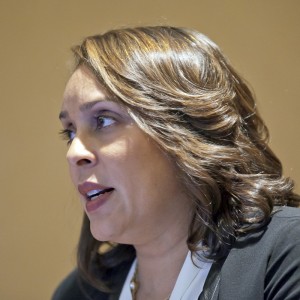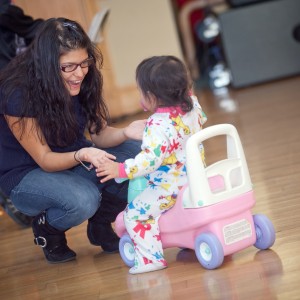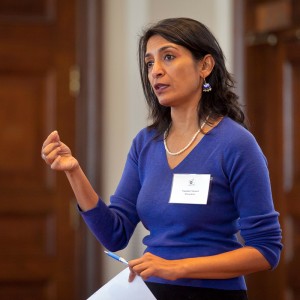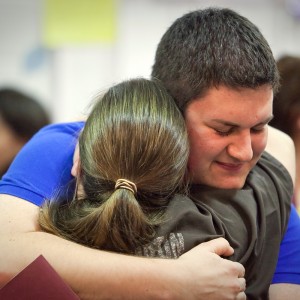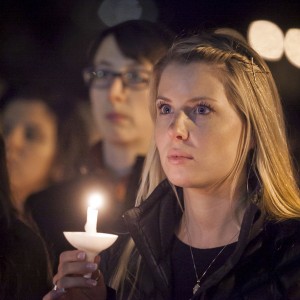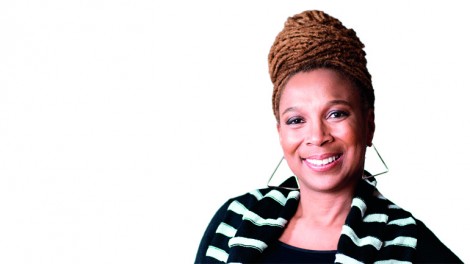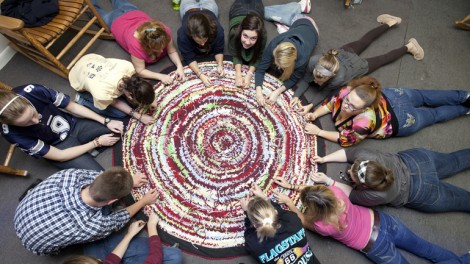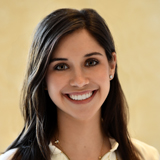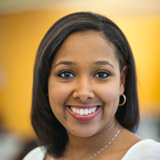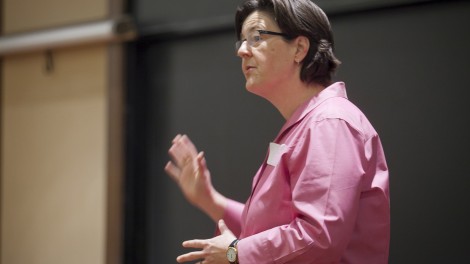Celebrating Gender Studies
Ask any of the founders of Women’s and Gender Studies who are still at Lafayette why they worked long hours on their own time and without pay to start the program at the College in the early 1980s, and they all pretty much say the same thing. They wanted to provide students with a more accurate and inclusive academic experience than the one primarily offered through the lens of white, European, heterosexual males.
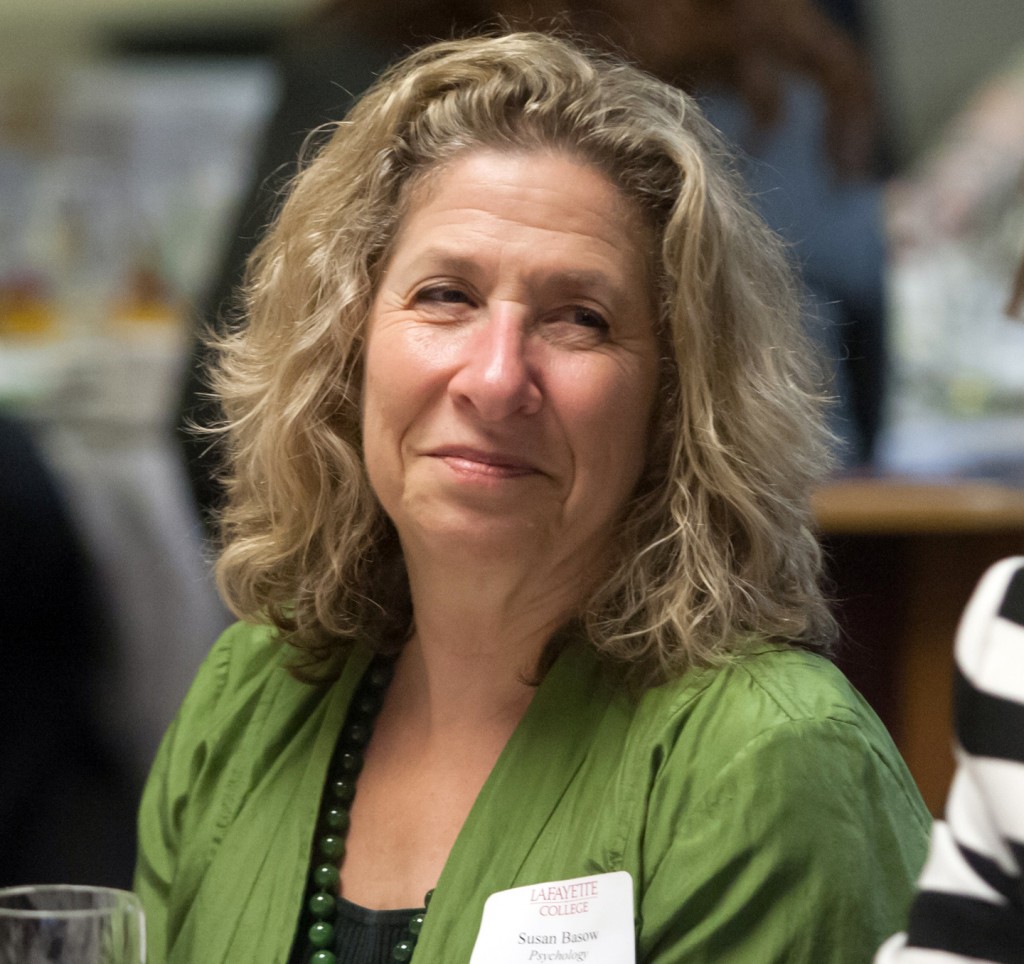
Susan Basow, Dana Professor of Psychology, was the first coordinator of the Women’s Studies program.
“It’s a way of addressing in what many ways is a biased representation of the world,” says Susan Basow, Dana Professor of Psychology and the first coordinator of the Women’s Studies program, renamed Women’s and Gender Studies in 2007. “The world looks different to men and women, depending upon socio-economic class, ethnicity, religion, and sexual orientations. It’s not that there’s something wrong with seeing things from one’s own standpoint, but when whole fields are constructed representing a singular segment of humanity, it’s pretty distorted. I think Women’s and Gender Studies, and not just at Lafayette, has transformed everything we learned.”
It also represents the best of a liberal arts education, says Mary Armstrong, associate professor of English/WGS and chair of the WGS program, which is celebrating its 30th anniversary this year. “It challenges academically, asking students to think outside the box,” she says. “At the same time, it transforms and inspires, empowering students – female and male – with insights that enrich their lives.”
Megan O’Neill ’96 is case in point. A first-year seminar on “Maleness in American Culture” with Deborah Byrd, professor of English and WGS, turned her on to WGS by opening her eyes to the stereotypes and challenges faced by a gender she didn’t think faced any.
“I thought it was a great perspective,” she says. But it was a trip to a display in Easton of The Clothesline Project, an initiative that raises awareness about violence against women by having survivors tell their stories on T-shirts, which solidified her decision to create a self-designed major called Race and WGS.
“One of the T-shirts was created in memory of a child killed by her father. We were all crying and I was looking at this and thought, ‘I want to do something. I’m going to go to law school and represent women who are victims of abuse.’”
And that’s what she did for two years in a student-run legal clinic while attending Stanford Law School.
“It was very fulfilling but hard not to take it home with you,” says O’Neill, who spent 12 years in private practice before leaving in April 2014 to launch oodfay, an app providing personalized restaurant recommendations.
Women’s and Gender Studies Graduates Making a Difference
Currently 14 students are either majoring or minoring in WGS, but several hundred more have taken WGS core courses or the many electives taught by one of 18 faculty members from 13 departments and programs. Courses such as the Introduction to WGS and Feminist Theory teach core concepts of the discipline while other offerings such as Women and Economics, Psychology of Gender, and Literary Sexualities provide a different frame through which to view traditional fields of study.
“Interdisciplinarity is crucial to WGS because you need a broad set of analytical tools to understand the complexities of gender,” explains Armstrong. “Plus, I like to think it’s a two-way street. It’s a safe bet that gender factors into whatever else a student is studying. Can you really be an expert in economics, or psychology, or literature without understanding the role of gender in those fields?”
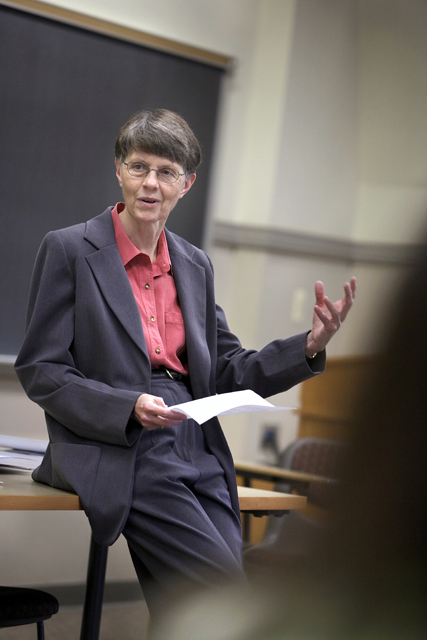
Carolynn Van Dyke, Francis A. March Professor Emerita of English, was one of the program’s founding members.
That was the question the six founders of the program asked themselves back in 1982 when they received a stipend from the provost to create an introductory course in Women’s Studies. None of the women, including Basow, Byrd, Carolynn Van Dyke, now Francis A. March Professor Emerita of English, and former faculty members Elizabeth Ferris (government and law), Maryann Valiulis (history) and Stacey Schlau (foreign languages) had a degree in women’s studies and most had never even taken a course in the discipline let alone taught one.
But that didn’t discourage them from moving forward and they spent several months digesting and discussing everything pertaining to gender they could find. They read Capitalist Patriarchy and the Case for Socialist Feminism by Zillah R. Eisenstein, works by feminist theologian Mary Daly, and Audre Lorde, a Caribbean American lesbian poet, writer, and activist. They even delved into biology and psychology, questioning when and how gender roles are defined.
“We met over the summer and read like crazy,” says Van Dyke. “It was a fabulous experience and very intense.”
Byrd says the group didn’t want to focus solely on “scholarship about white middle class women” and was therefore attentive to issues of class, race, sexual orientation, and identity. “We were doing intersectionality before the term was coined,” she says. “We were pretty progressive.”
It was also exciting to discover new voices and ideas overlooked or disparaged by earlier male scholars.
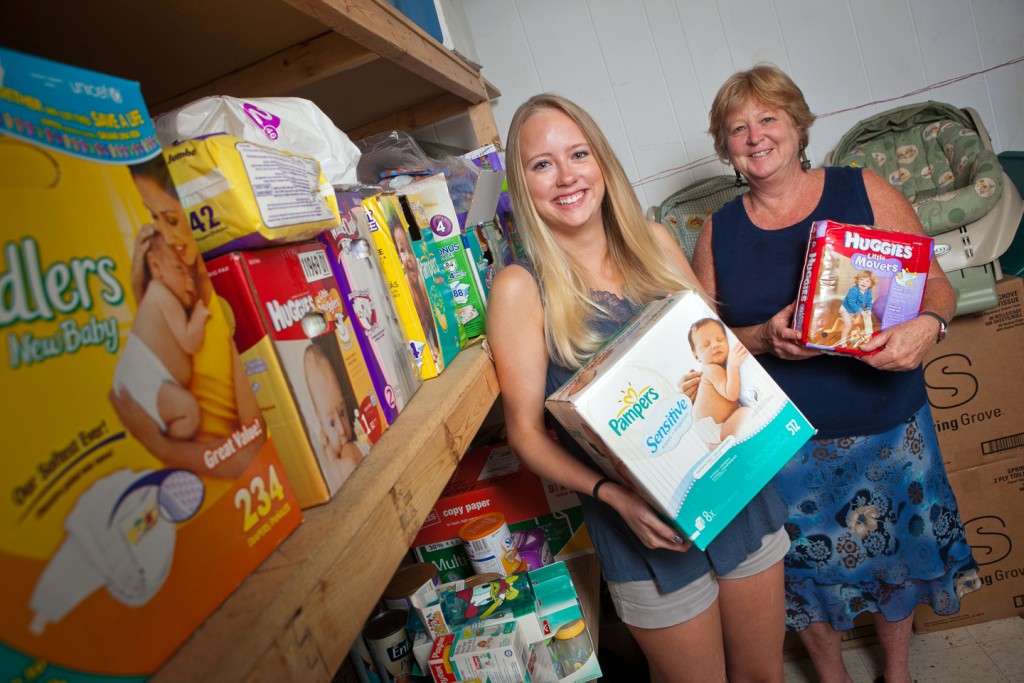
Kristin Anderson ’14 and Professor Debbie Byrd stand in the storage room at the Easton Area Neighborhood Center. As part of their research, they distribute items to expecting and new parents. In addition to her research projects, Byrd teaches the Single Motherhood course.
“As a literary scholar, I had been exposed to so few women writers,” explains Byrd, whose thesis adviser was the only tenured female on the English faculty at Emory University when she received her Ph.D. in 1981. “I wanted to know what women of the past had to say; their perspectives are different from men’s. I discovered there were lots of women publishing great poems and novels in early 19th century England — not just the five I’d had heard about.”
The course that developed from this summer self-study group – Introduction to Women’s Studies — was offered in 1983. The course was team-taught in rotation by the six founders. Women’s Studies considered such issues as equal pay, the role of women in different religions, and sexual identity. Women’s Studies became an official minor in 1985. Basow, the only founder who had tenure, took on the role of program coordinator without pay.
“It was a labor of love,” she explains.
Women’s Studies began offering its own WS courses in 1988 and as the program grew students began designing their own majors. In 2007, the program changed its name to WGS, and in 2009 Armstrong was hired as program chair and the College’s first interdisciplinary hire. The AB degree in WGS was approved by faculty in 2011.
Basow says Armstrong’s arrival has been a game changer for the program. “The original founders back in the 80s couldn’t dream of a more perfect leader than Mary. She’s an excellent scholar, a terrific teacher, and she’s transformed the program into a very strong major.”
Robert Young ’14, a WGS and film and media double major, says issues that were tackled in film classes, such as the objectification of women in advertising and movies’ hypersexual portrayal of Black men, were then further dissected in the WGS courses he took with Armstrong. These days he can’t watch a movie or TV show, he says, without analyzing the propagation of gender stereotypes.
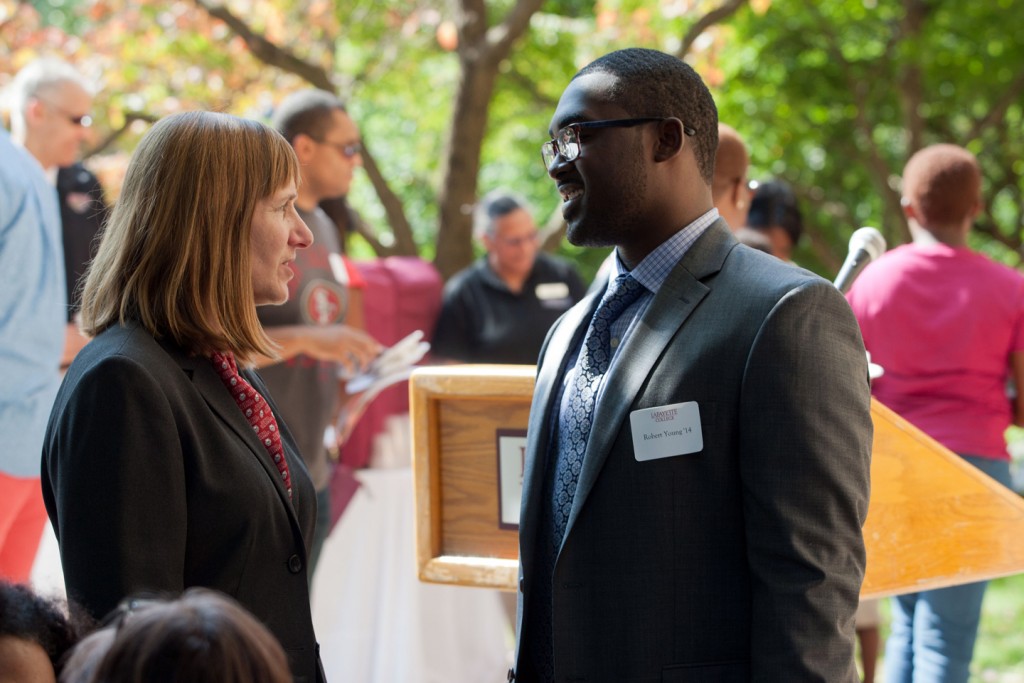
President Alison Byerly speaks with Robert Young during the opening reception for “Tales of Our Brothers: The Journey of David and Washington McDonogh.” Young curated the long-term exhibit featured in Pardee Hall.
Young, now assistant director of the College’s annual fund, believes all first-year students should be required to take a course in WGS.
“If we’re talking about a liberal arts education it should be required for everyone because it makes you a more well-rounded person. The things I was blind to, the small stuff that happens every day because we’re desensitized and numb to the foolishness, I’m aware of. It’s another layer I can offer in my interactions and relationships.”
